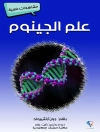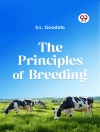This book brings together the most recent advances from leading experts in the burgeoning field of environmental biotechnology. The contributing chapters adopt a multidisciplinary approach related to environmental aspects of agriculture, industry, pharmaceutical sciences and drug developments from plant and microbial sources, biochemical chemical techniques/methods/protocols involved in different areas of environmental biotechnology. Book also highlights recent advancements, newly emerging technologies, and thought provoking approaches from different parts of the world. It also discusses potential future prospects associated with some frontier development of biotechnological research related to the environment. This book will be of interest to teachers, researchers, biotechnologists, capacity builders and policymakers, and will serve as additional reading material for undergraduate and graduate students of biotechnology, microbiology and environmental sciences.
Tabela de Conteúdo
Chapter 1. Environmental Biotechnology: Towards a Sustainable Future.- Chapter 2. THE MYSTERY OF METHANOGENIC ARCHAEA FOR SUSTAINABLE DEVELOPMENT OF ENVIRONMENT.- Chapter 3. Chitosan Coatings Biotechnology for Sustainable Environment.- Chapter 4. Bacterial Biodegradation of Bisphenol-A (BPA).- Chapter 5. Microbial Degradation of Marine Plastics: Current State and Future Prospects.- Chapter 6. Mechanism and Pretreatment Effect of Fungal Biomass on the Removal of Heavy Metals.- Chapter 7. Metal bioremediation, mechanisms, kinetics and role of marine bacteria in the bioremediation technology.- Chapter 8. Biofilm Associated Metal Bioremediation.- Chapter 9. Phytoremediation of mine waste disposal sites – current state of knowledge and examples of good practice.- Chapter 10. Metallicolous plants associated to amendments and selected bacterial consortia, to stabilize highly polymetallic contaminated mine deposits.- Chapter 11. Bioindication of heavy metals contamination by mushrooms and mosses in highly industrialized environment.- Chapter 12. Polycyclic Aromatic Hydrocarbons: Toxicity and Bioremediation Approaches.- Chapter 13. Biogenic Nanoparticles and Strategies of Nano-Bioremediation to Remediate PAHs for a Sustainable Future.- Chapter 14. Value-Added Products from Agroindustry By-Product: Bagasse.- Chapter 15. Bio-prospecting of fruits waste for exopolysaccharide production by bacteria.- Chapter 16. Plant growth promoting rhizobacteria as bioinoculants for plant growth.- Chapter 17. Microbial and enzymatic bioconversion of tannery wastes: progress toward a circular economy in the leather industry.-
Sobre o autor
Dr. Sanket Joshi is a Deputy Director, Oil & Gas Research Center, and an Application Specialist, Oil & Gas Science at Sultan Qaboos University, Oman. Dr. Joshi has 16 years of academic teaching and research experience, and 4 years of industrial R&D experience, in India and Oman. While working in Indian pharma companies, he undertook several turnkey projects (both upstream and downstream) on antibiotics (β-lactams, macrolides, glycopeptides), antidiabetic drug (for type II diabetes), and Co-enzyme Q10. His current research interests encompass: Energy (In-situ/ex-situ microbial enhanced light/heavy oil recovery; chemical enhanced oil recovery; biofuels); Microbial products (biosurfactants, biopolymers, R&D and scale-up); and Environmental bioremediation. Those research projects are multidisciplinary, involving both biotechnology and engineering disciplines. He serves as an Academic/Associate/Guest Editor for some of the highly reputed journals.
Prof. Arvind Deshmukh has served several academic institutes with a career spanning more than 37 years. During those years he served as the Head of Microbiology department, board member of University Teaching and Research, Board of Studies in Microbiology, Academic Council, District Environment Committee, formed by Govt. of Maharashtra (2000 – 2006), Examination Committee, Research & recognition Committee in Microbiology and Biotechnology, Chairman, Board of studies in Microbiology, and several other important posts in various colleges and Universities across Maharashtra, India. He was awarded as a fellow of Biotech Research Society of India, in 2005. Along with other experts, he formed Microbiologists Society, India, a registered NGO, and is currently serving as President of the society. Currently he tirelessly provides guidance to Microbiology students throughout India and abroad for free, engages subject experts over several topics, provides lectures and trainings.
Dr. Hemen Sarma iscurrently senior Assistant Professor at Nanda Nath Saikia College, affiliated to the Dibrugarh University, Assam, India [Since 2012]. His research focuses on plant-microbiome interactions, biosurfactants, sustainable remediation, CRISPR/cas9 gene editing and nanobiotechnology. Five books have been edited for John Wiley and Sons, Springer Nature, and Elsevier. He is also book series editor of Advances in Biotechnology and Bioengineering, Elsevier. He received numerous awards, distinctions and fellowships, including the DBT-Overseas Associateship [2015-16] and the DBT-Research Associateship [2011-12], the IISc Research Associateship [2009] and the UGC Dr. DS Kothari Postdoctoral Fellowship Awards [2009-10]. In 2017–18, Dr. Sarma joined the Visitor Professor Fellowship Program as an affiliate of the Department of Chemistry and Biochemistry, University of Texas at El Paso, USA.












